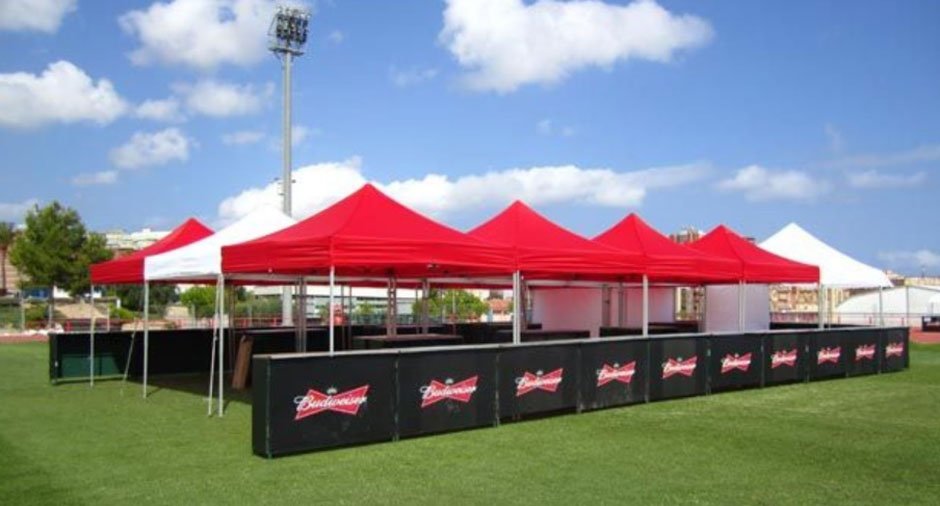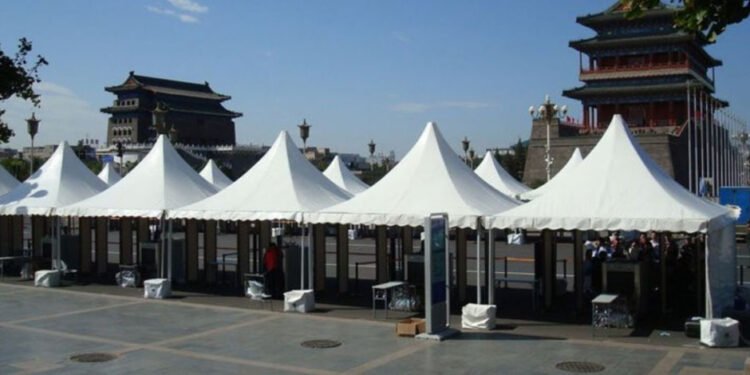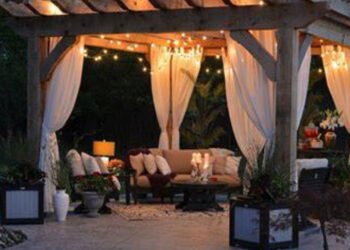Hosting an outdoor business event is a smart way to gain exposure, connect with customers, and facilitate meaningful brand-building experiences. But before you get ready for the event, there is one thing you need to think about first: that is not your marketing material or your actual marketing. Your tent is to be the “canvas” of your event, whether you are highlighting the products that you are demonstrating on behalf of your brand, establishing relationships with potential customers, or simply providing some structure and shade at your event. In recent years, we have seen a rapid growth in interest in using custom canopies for businesses that want to create branding synergies but also have functions. With so many available styles, features, and sizes, this blog will help you decide which tent is best for you.
When making your tent decision, you should define the tent that best matches your event setting, goals, and overall brand. Selecting a tent for your outdoor business event can be a daunting task, and I’ve compiled a checklist to make the entire decision cycle much smarter and more strategic.
5 Key Considerations When Selecting Your Event Tent

- Understand the Function and Fit of Pop-Up Tents
Thanks to their portability and easy setup process, pop-up tents are one of the most common types of outdoor business events. These tents are made for short-term usage and will typically fit into smaller spaces. Pop-up tents are great for events such as street fairs, farmers’ markets, or informal product displays.
Just like everything else, however, not all pop-up tents are the same. Some things to assess are the level of ease to set up, the strength of the frame, and how much space the tent is going to cover. Most importantly, ensure the tent is compatible with your marketing materials and needs—can it hold banners, signage, or custom prints?
- Evaluate Size vs. Space Requirements
You should be thinking not only about the square footage provided by the tent but also about how you will utilize the space. Think about your event. Are you displaying products? Building a small demo station? Running private meetings or providing shade for dining?
In a nutshell, think through the event flow. A too-small tent may feel very tight, and a tent that is too large may be large and disengaging. Don’t forget to plan for buffer zones around the tent for walkways or more branding.
- Prioritize Weather Protection and Durability
Outdoor events can often be subject to the unexpected. You do not want your tent to collapse halfway through your presentation or allow rain to ruin your materials! Remember to always check that you are using tents that have the correct rating for wind resistance and are waterproof.
You might also want to think about UV-resistant fabrics if your event is going to be in direct sunlight for hours. Some tents will come with side panels or rain gutters as added protection. This becomes even more important in places known for abrupt weather changes.
- Don’t Overlook Branding Opportunities
Consider your tent as a visual billboard, not just a leaky roof; even something as simple as having different colors or a logo printed on your tent’s wall or on the valances can lead to miscommunication. That’s why it’s essential to choose your event tent materials and design wisely. Make sure there’s consistency in your branding, tone, color, graphics, and signage, as they all play a role in attracting visitors to your tent.
Depending on what you are trying to achieve in terms of branding, whether it’s a high-end and modern look or a vibrant and inviting ambiance, there should be an opportunity for your tent to work for you.
- Consider Logistics: Transport, Storage, and Setup
Tents might look straightforward to you until you need to transport and set them up yourself. Be realistic about your team’s capabilities. Can it be set up by two people, or are more people needed? How easy is it to transport it? Did it come with some kind of storage case or wheeled bag?
If you attend multiple events throughout the year, you will become even more sensitive to the portability and ease of setting up aspects. A more expensive but lightweight tent can be more economical over a long period, just by reducing both your labor and transportation costs.
End Point
Choosing a tent for your outdoor business event is not just a task—it is a strategic decision. By thinking about practical aspects like use case, durability, ease of constructability, and enhancing your tent with opportunities to connect your brand, you can ensure your brand and message are lasting for all the right reasons. A tent is more than an awning and stakes—it is a basis for presence, opportunity, and business growth.












